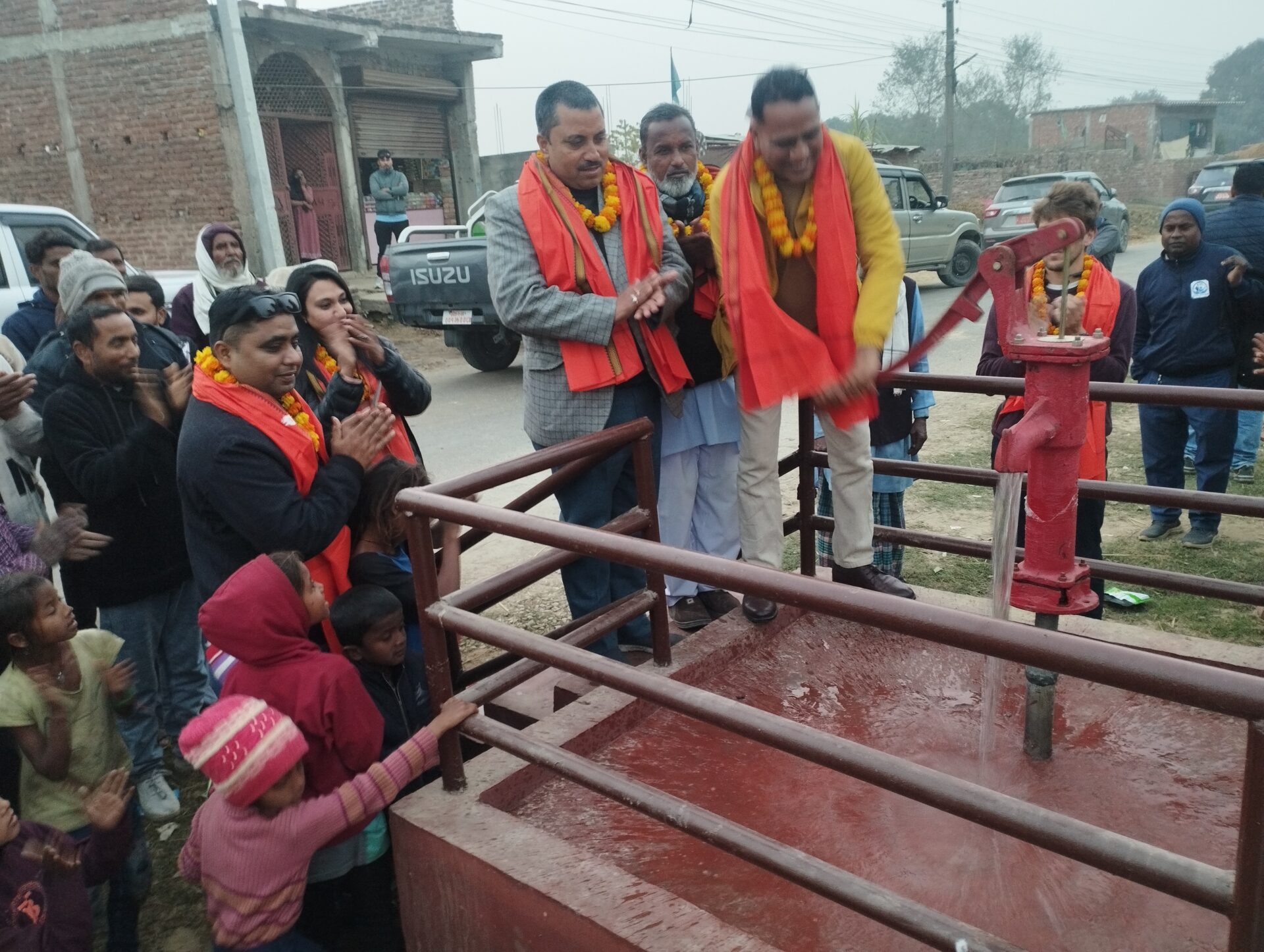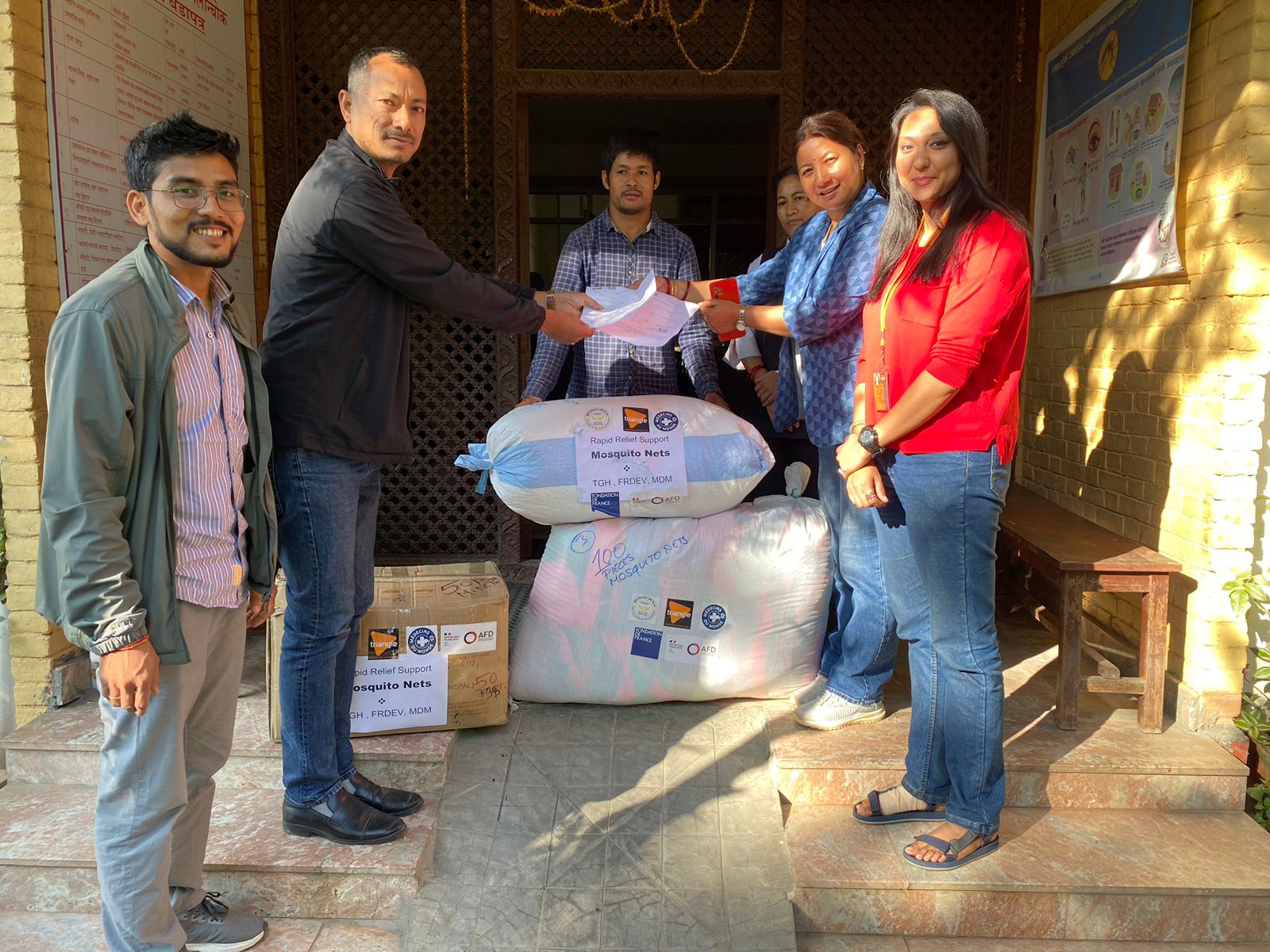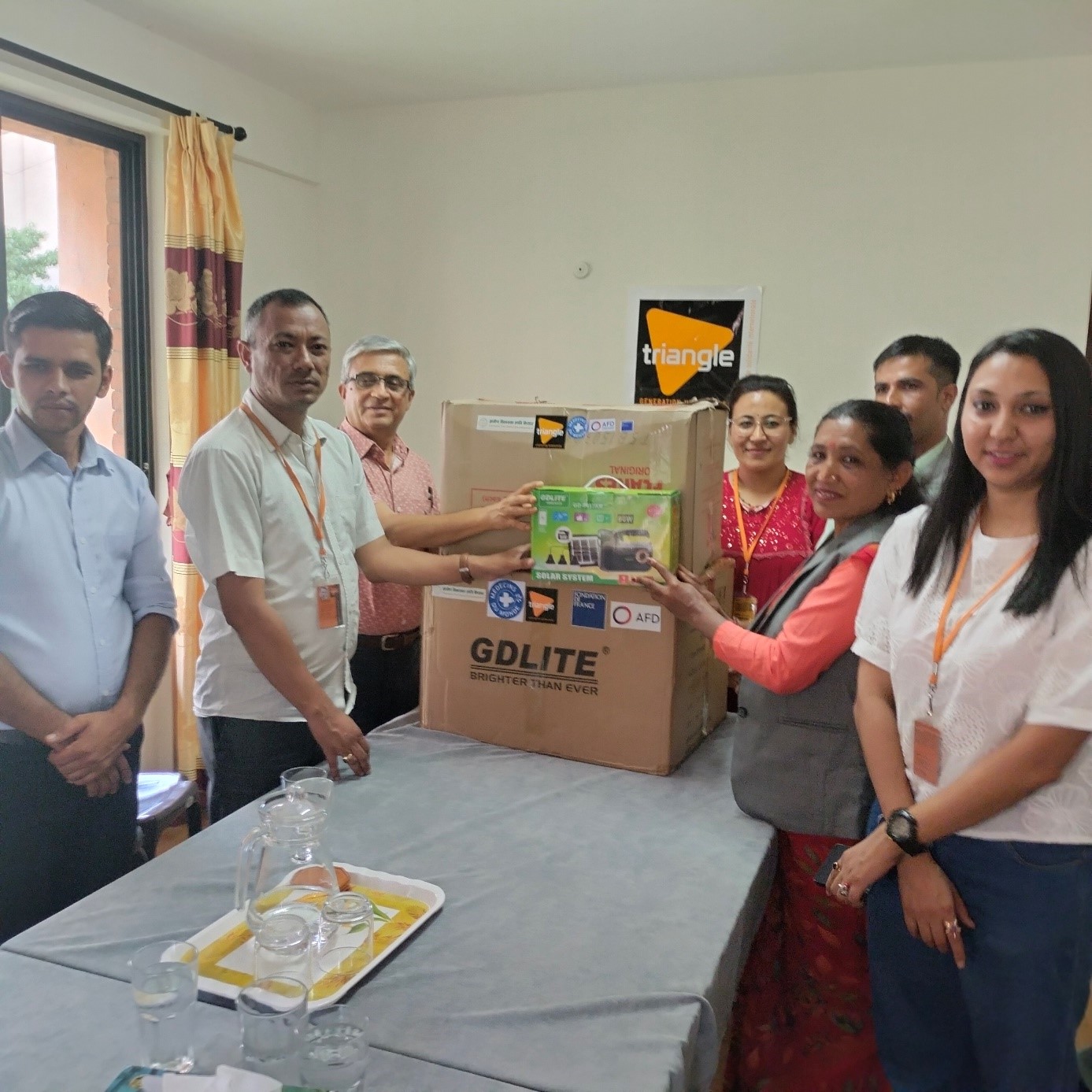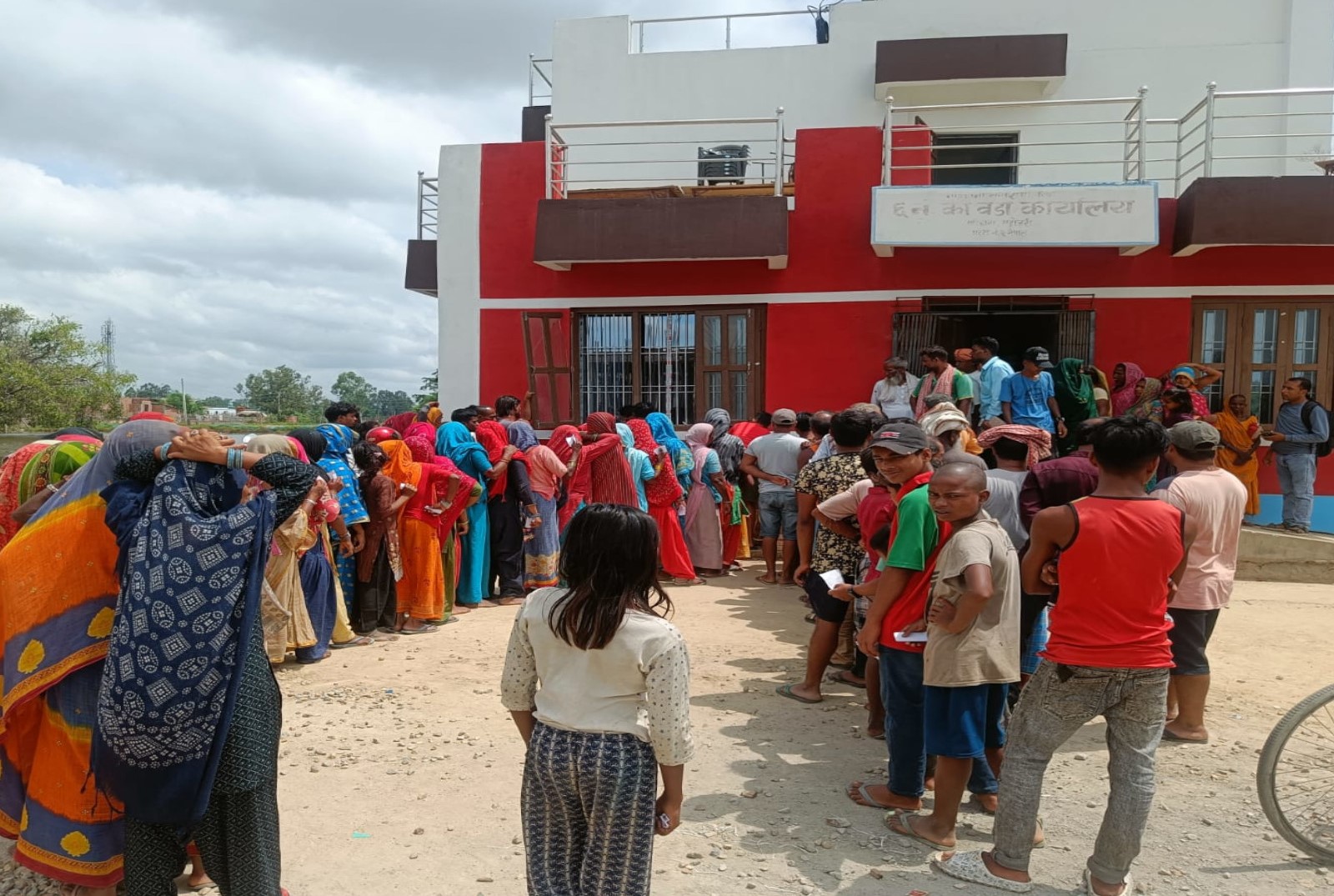Beneficiaries
13,297
Time period
01/09/20 > 31/08/23
Overall budget
536,839 €

Water, Sanitation & Hygiene
Funding

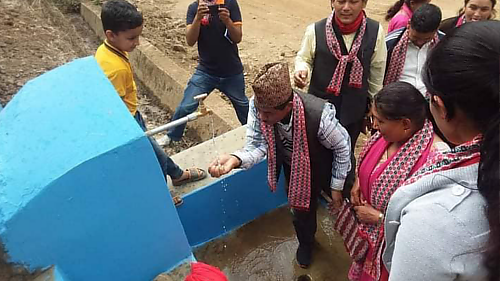
Programme details
Partner
- ARSOW-Nepal (Association for Rural Social Welfare)
This project is a continuation of the work already carried out by TGH in Nepal, as it co-finances an ongoing programme funded by the Fondation de France and the Agence Française de Développement. It involves an integrated global reconstruction programme (IGRP3) being implemented in 4 villages (Thangpaldhap, Thangpalkot, Gunsakot and Bothang) in the Sindhupalchok district, located in the Panchpokari Thangpal Valley.IGRP3 (Integrated Global Reconstruction Program – Phase 3) is the third phase of a project that began in 2015 following the earthquakes that hit Nepal in April and May 2015.
The emergency (IGRP1) and post-emergency (IGRP2) phases have helped the people of Sindhupalchok district to regain at least the standard of living they had before the 2015 earthquakes.
The aim of the development phase (IGRP3) is to support the economic development of the intervention zone by reviving economic activities through the distribution of means of production and support for technical training, and by promoting more resilient livelihoods. However, in terms of access to water, health infrastructure and sanitation systems, not all needs are covered.
To meet these needs, TGH has designed a Water, Hygiene and Sanitation project that aims to extend and make sustainable access to drinking water, hygiene and sanitation through three areas of intervention.
The first priority is to improve and facilitate access to water and sanitation facilities by renovating and/or building improved water networks, renovating and/or building public toilets in public places and schools, building a public sanitation area dedicated to women, building septic tanks, building sanitation facilities, training and supporting management committees, and organising campaigns to raise awareness of good hygiene practices.
The second is to keep community areas clean in order to promote respect for the environment, by setting up a waste sorting and recycling area in each village, providing material support for the collection, transport and sorting of waste, technical support for the organisation of the collection, transport and processing of household waste, setting up a system for incinerating non-recyclable waste, and organising awareness-raising campaigns on household waste management.
The third priority is to promote access to environmentally-friendly green energy by providing material support for the construction of community and domestic biogas plants, technical support for the construction and maintenance of biogas digesters, and the organisation of awareness-raising campaigns on renewable energy.
Ultimately, this Water, Sanitation and Hygiene project aims to have a positive and lasting impact on the quality of water resources, reduce the risk of pollution from organic sources and help preserve natural resources.
